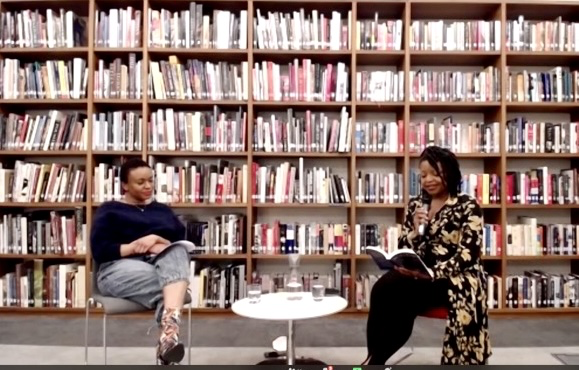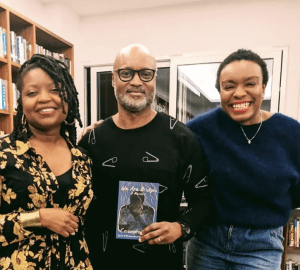I’ve joked with friends that it took a global pandemic for me to finally get around to fulfilling two beloved childhood dreams — becoming an author and visiting Paris. In the belly of that humor, as in the belly of long-held dreams, is some wistfulness, some self-admonishing and existential questions: What took you so long? And what is the purpose of writing and traveling in a world rife with plague and war?
During my trip to Paris in February, I came across words from one of the world’s greatest thinkers and authors — James Baldwin — that helped me put these nagging questions to rest.
The Baldwin quote was printed on an oversized placard propped inside a street-facing window of Shakespeare & Company bookstore. I’d read the quote before, but there was something about taking rapid COVID tests at a pharmacie, showing my vaccine card everywhere I went and masking while 5,600 miles away from home that caused Baldwin’s words to (as the kids say) “hit different.”
“You think your pain and your heartbreak are unprecedented in the history of the world, but then you read,” said Baldwin, who lived in Paris for a time. “It was books that taught me that the things that tormented me most were the very things that connected me with all the people who were alive, or who had ever been alive.”
Books were my travel portals as a child, and in reading Baldwin’s words, I was overcome with emotion and gratitude. It was the writing and publishing of my first book that had brought me to Paris. I was there as part of a book event at The American Library in Paris, curated by my longtime friend Patrick Banks, founder of The Californien. Malika Ali Harding, a multitalented American artist and writer based in Amsterdam (I taught her son freshman English when they lived in L.A.!), served as my interlocutor during our author talk. It was a book dream even my girl self had not thought to dream up. I gazed at the rows of books holding up the wall behind my speaker’s table and felt my knees tremble with wonder. “A great library contains the diary of the human culture and its spirit,” Diane Ratican writes in “Why LA, Pourquoi Paris,” a travel book in which she compares these two great cities.
Looking back at Baldwin’s quote, you can easily interchange the word “books” with “travel.” Travel — if we let it, if we move “beyond the postcard,” as Patrick says — carries the ability to connect us with “all the people who are alive” — dissolving borders, prejudices, misconceptions and even language barriers. In February, the streets of Paris were quiet. Tourism was still languishing, and I could hear the worry in the voices of my taxi drivers and some merchants with whom I was able to — in my very, very broken French and their better English — communicate.
Outside my book event and dining with new and old friends who are ex-pats, I walked and walked and walked. Along the Seine, to the Eiffel Tower, to gardens and bookstores and parks. I ate a warm baguette and sipped a cappuccino in soft rain. Gawked at hundreds-year-old buildings, bridges, sculptures. Yes, the pandemic was — and is — still alive and kicking, but in this old city life felt a little more stable for a time. In her book, next to drawings juxtaposing the Watts Towers with the Eiffel Tower, Ratican quotes Johann Wolfgang von Goethe: “I call architecture frozen music.”

I think of this quote when I remember the man playing his violin in the courtyard at the Louvre, how the walls contained his sound of music, catching us pedestrians in its orb.
As summer approaches, where are you and your family thinking of traveling? What music will you create? Whose heartbreak will you seek to better understand? In what earthly delights will you partake?
Be safe and curious.
Cassandra
Cassandra Lane is Editor in Chief of L.A. Parent.
























